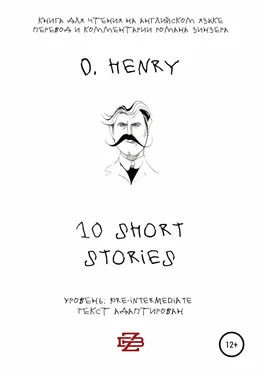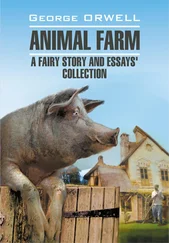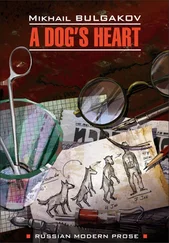Роман Зинзер
zinzer-studio.com
@romanzinzer
The Gift of the Magi
One dollar and eighty-seven cents. That was all. She had put it aside| Она откладывала деньги. To put aside – откладывать |, one cent and then another and then another, in her careful buying of meat and other food. Della counted it three times. One dollar and eighty-seven cents. And the next day would be Christmas.
There was nothing to do butfall on the bed and cry |”But” в этом случае значит “ кроме как ” |. So Della did it.
While the lady of the home is slowly growing quieter| медленно успокаивалась |, we can look at the home. Furnished rooms at a cost of $8 a week. There is little more to say about it.
In the hall below was a letter-box too small to hold a letter. There was an electric bell, but it could not make a sound. Also there was a name beside the door: “Mr. James Dillingham Young.”
When the name was placed there, Mr. James Dillingham Young was being paid$30 a week | ему платили. Пассив: над ним совершали действие, to be и третья форма глагола. “Being”, чтобы подчеркнуть периодичность выплат |. Now, when he was being paid only $20 a week, the name seemed too long and important. It should perhaps have been“Mr. James D. Young.”| наверно , имя должно было бы звучать | But when Mr. James Dillingham Young entered the furnished rooms, his name became very short indeed. Mrs. James Dillingham Young put her arms warmly about him and called him “Jim.” You have already met her| вы с ней уже встречались | . She is Della.
Della finished her crying and cleaned the marks of it from her face. She stood by the window and looked out with no interest. Tomorrow would be Christmas Day, and she had only $1.87 with which to buy Jim a gift. She had put aside as much as she could for months, with this result. Twenty dollars a week is not much. Everything had cost more than she had expected| had и третья форма глагола . О. Генри очень любит рассказывать о событиях, предшествующих повествованию |. It always happened like that|таким образом|.
Only $ 1.87 to buy a gift for Jim. Her Jim. She had hadmany happy hours planning something nice for him | had had – это не опечатка. Это опять же had и третья форма глагола have, которые значат, что на тот момент у нее было много счастья с Джимом |. Something nearly good enough. Something almost worth the honorof belonging to Jim | стоящее той чести |.
There was a looking-glass between the windows of the room. Perhaps you have seen the kind of looking-glass that is placed in $8 furnished rooms. It was very narrow. A person could see only a little of himself at a time| за раз |. However, if he was very thin and moved very quickly, he might be able to get a good view of himself. Della, being| будучи | quite thin, had mastered this art.
Suddenly she turned from the window and stood before the glass. Her eyes were shining brightly, but her face had lost its color. Quickly she pulled down her hair and let it fall to its complete length.
The James Dillingham Youngs| обычный для английского языка способ назвать семью по имени мужчины. Главное здесь – это поставить впереди артикль the, и фамилию во множественном числе | were very proud of two things which they owned. One thing was Jim’s gold watch. It had once belonged to his father. And, long ago, it had belonged to his father’s father. The other thing was Della’s hair.
If a queen had lived in the rooms near theirs, Della would have washed and dried her hair where the queen could see it| если б сама королева жила .., Делла бы мыла и сушила .., но это вряд ли осуществимо . Самый сложный вид условного предложения: если бы раньше было так, то теперь бы все было так. После if должно быть had и третья форма глагола, во второй части предложения: would или модальный глагол, потом have и третья форма глагола |. Della knew her hair was more beautiful than any queen’s jewels and gifts.
If a king had lived in the same house, with all his riches| со всеми его богатствами |, Jim would have looked at his watch every time they met. Jim knew that no king had anything so valuable.
So now Della’s beautiful hair fell about her, shining like a falling stream of brown water. It reached below her knee. It almost made itself into a dress for her| волосы у нее были такие густые и длинные , что окутывали ее как платье |.
And then she put it up on her head again, nervously and quickly. Once she stopped for a moment and stood still| замерла | while a tear or two ran down her face.
She put on her old brown coat. She put on her old brown hat. With the bright light still in her eyes, she moved quickly out the door and down to the street.
Where she stopped, the sign said: “Mrs. Sofronie. Hair Articles of all Kinds.”
Upto the second floor Della ran,and stopped to get her breath| …взбежала…перевести дух |.
Mrs. Sofronie, large, too white, cold-eyed, looked at her.
“Will you buy my hair?” asked Della.
“I buy hair,” said Mrs. Sofronie. “Take your hat off and let me look at it.”
Down fell the brown waterfall| О. Генри часто пользуется приемом инверсии – переставляет слова в предложении, так что оно получается не вполне стандартным для английского языка. Down fell the brown waterfall – это инверсия. Обычное предложение выглядело бы “the brown waterfall fell down” |.
“Twenty dollars,” said Mrs. Sofronie, lifting the hair to feel its weight.
“Give it to me quick,” said Della.
Oh, and the next two hours seemed to fly. She was going from one shop to another, to find a gift for Jim.
She found it at last| наконец-то |. It surely had been madefor Jim and no one else | было сделано для Джима . И прошедший Perfect и пассив слились воедино |. There was no other like it in any of the shops, and she had lookedin every shop in the city | конструкция had и третья форма глагола . Смысл этого в том, что Делла что-то делала до какого-то момента или на какой-то момент: она посмотрела во всех магазинах на тот момент |.
Читать дальше












